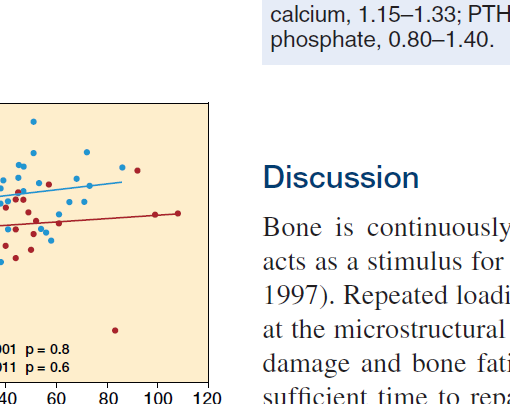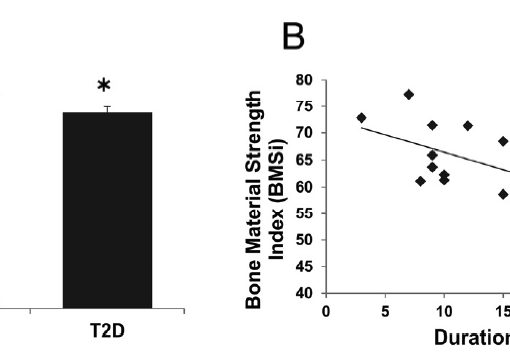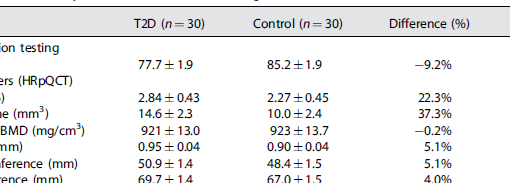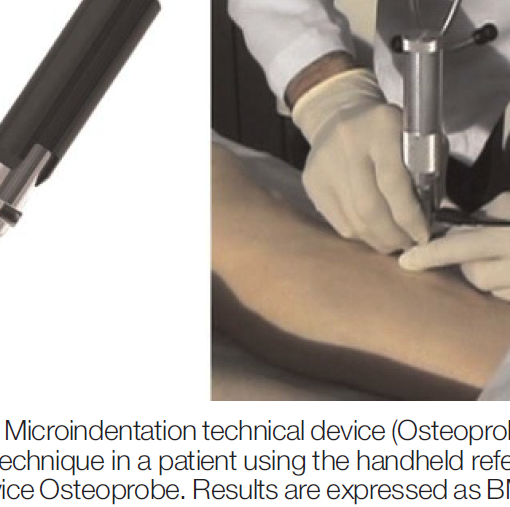Abstract
We evaluated the relationship between bone material strength index (BMSi) and fragility fractures, including vertebral fractures. Our data showed that BMSi is low in all fracture patients with low bone mass, independently of whether patients sustained a vertebral or a non-vertebral fracture.
INTRODUCTION:
Impact microindentation (IMI) is a new technique for the measurement of tissue level properties of cortical bone in vivo. Previous studies showed an association between BMSi and non-vertebral fractures, but an association with vertebral fractures is still being debated. The objective of this paper was to evaluate the relationship between BMSi and different types of fragility fractures, including vertebral fractures.
METHODS:
In this cross-sectional study, we measured BMSi in patients of both sexes with different types of fragility fractures and low bone mass with the IMI method using the Osteoprobe®. Vertebral fractures were diagnosed and graded on lateral spine radiographs.
RESULTS:
A total of 132 patients were included in the study, of whom 101 patients (65 women) had sustained a low energy fracture and 31 (mean age 57.7 ± 9.9 years) had no history or radiological evidence for a fracture. Of the fracture patients, 53 (mean age 62.8 ± 8.3 years) had only non-vertebral fractures (VF-/Fx+), 34 (mean age 62.8 ± 9.9 years) had vertebral and non-vertebral fractures (VF+/Fx+), and 14 (mean age 64.7 ± 9.3 years) had only vertebral fractures (VF+/Fx-). BMSi values, adjusted for age and BMD, were similar for all three groups of fracture patients (78.9 ± 0.7, 78.3 ± 0.9, and 78.4 ± 1.4, respectively; p = 0.866). BMSi values were not associated with number or severity of vertebral fractures.
CONCLUSION:
Our data demonstrate that BMSi is low in fracture patients with low bone mass, irrespective of whether they sustained a vertebral fracture or a non-vertebral fracture.
https://www.ncbi.nlm.nih.gov/pubmed/28466137
Osteoporos Int. 2017 Aug;28(8):2433-2437. doi: 10.1007/s00198-017-4054-8. Epub 2017 May 2.




